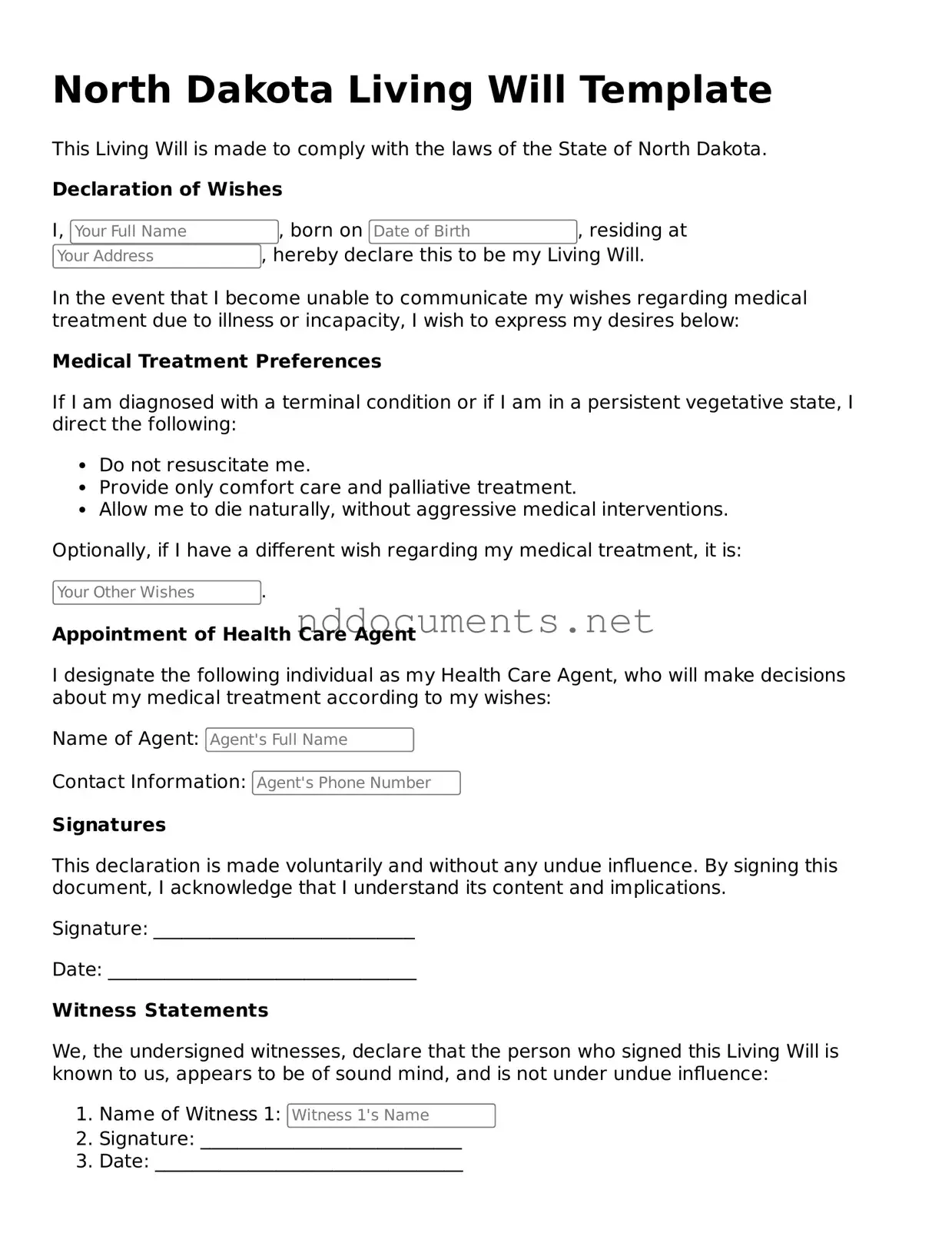Fillable Living Will Document for North Dakota
A North Dakota Living Will form is a legal document that allows individuals to outline their preferences for medical treatment in the event they become unable to communicate their wishes. This form ensures that a person's healthcare decisions are respected, particularly regarding life-sustaining treatments. By completing a Living Will, individuals can provide clarity and peace of mind for themselves and their loved ones during challenging times.
Make Your Document Online

Fillable Living Will Document for North Dakota
Make Your Document Online

Make Your Document Online
or
➤ Living Will
Don’t walk away from an unfinished form
Finish Living Will online quickly from start to download.